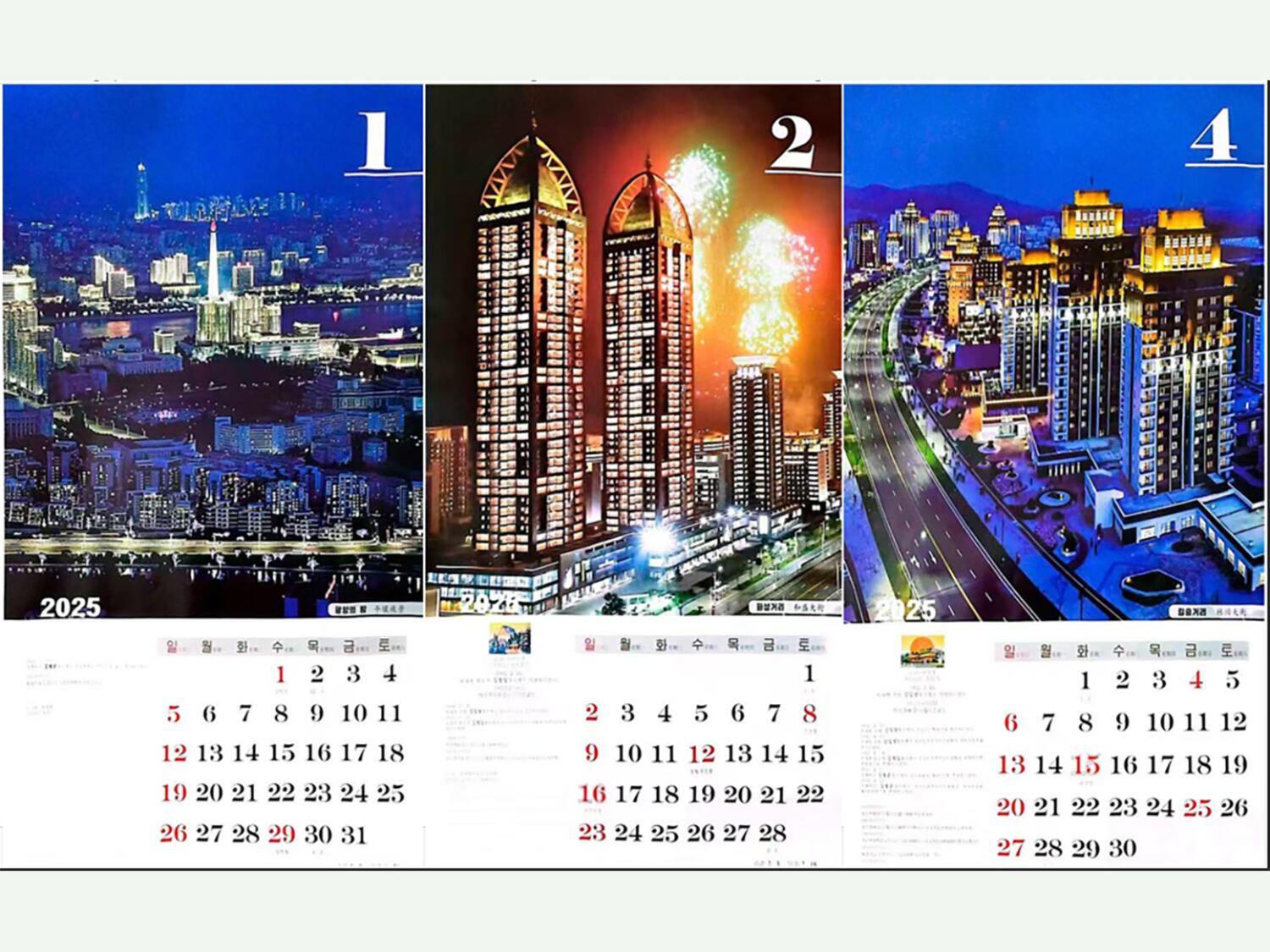
Read a version of this story in Korean
North Korea is issuing colorful official calendars emblazoned with “2025″ — not “Juche 114,” as it would have previously under the dating system based on the birth of the country’s founder, residents in China told Radio Free Asia.
The move appears to be yet another way that the country’s supreme leader Kim Jong Un is trying to boost his own profile by diminishing reverence for his predecessors — his father Kim Jong Il and his grandfather, national founder Kim Il Sung, the residents said.
“This year, North Korea is eliminating symbols of idolization of Kim Il Sung and Kim Jong Il,” a Chinese citizen of Korean descent from Shenyang told RFA Korean on condition of anonymity for security reasons.
The juche dating system is named after North Korea’s founding juche ideology of self-reliance, a philosophy conceived by Kim Il Sung.
Official calendars from the government are important propaganda tools. They are distributed to the public as gifts, and they often contain pictures touting the country’s achievements, instilling reverence for the leadership or showcasing military strength.
This year’s calendars display brightly-lit skyscrapers of the capital at night — even though Pyongyang is known to suffer from frequent power shortages.
In 2021, Kim Jong Un announced a program to build 10,000 new homes per year in the city, and 50,000 by the end of 2025, so it may be an attempt to emphasize that the project is going well.
Juche years
In 1997, three years after Kim Il Sung’s death, official North Korean calendars began counting the years in terms of the era of juche, retroactively renaming 1912, the year of Kim’s birth, “Juche 1.″
According to this dating system, Korean independence from Japanese colonial rule occurred not in 1945, but “Juche 34,” and North Korea was founded not in 1948, but in “Juche 37.″
RELATED STORIES
In North Korea, printed calendars separate rich from poor
No candy for old kids in North Korea
North Koreans are getting sick of propaganda song ‘Friendly Father’
But now it appears North Korea wants to do away with the juche dating system.
In October, North Korean newspapers stopped the juche count, in favor of the Gregorian calendar used in most of the rest of the world, South Korea-based media outlet NK News reported.
The Shenyang resident found it curious that even though the calendar removed the juche year to de-emphasize Kim Jong Un’s predecessors, it still marked the two holidays created to honor them on their birth anniversaries, the Day of the Sun, for Kim Il Sung on April 15, and the Day of the Shining Star, for Kim Jong Il, on Feb. 16.
“It is very unusual that the 2025 calendar … includes the Day of the Shining Star and the Day of the Sun.”
Another resident, from the city of Dandong, which lies across the Yalu River border from North Korea’s Sinuiju, told RFA he had heard that authorities were told not to use those terms for those holidays.
“So it is strange that they are still written on the New Year’s calendar,” he said.
The Dandong resident said that he heard Pyongyang has blackouts, so the brightly-lit nightscapes of the city come across as propaganda.
“They cannot show the reality of the capital city, with insufficient electricity, so they are trying to promote the splendor of Pyongyang by taking pictures with the lights on,” he said.
Translated by Claire S. Lee. Edited by Eugene Whong and Malcolm Foster.
